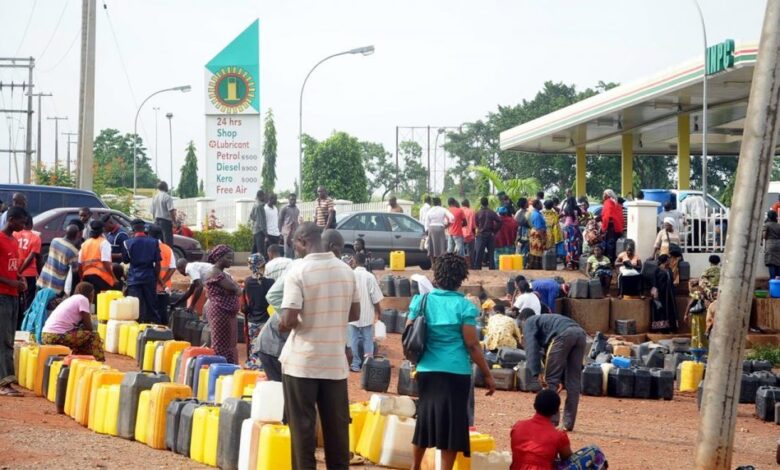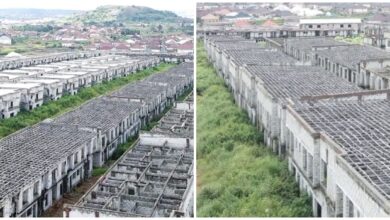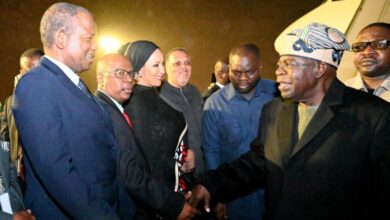Protests Mount Over Fuel Price Hikes And Economic Hardship

Last week, a significant number of Nigerians took to the streets in renewed protests against the skyrocketing cost of petrol, its persistent scarcity, and the worsening economic hardship gripping the nation. Led by Abdullahi Bilal under the banner of a “two-million march against the oil scam squad,” the protests reflect growing public frustration over the effects of fuel subsidy removal.
The Roots of the Crisis
The current economic challenges stem from the Federal Government’s abrupt removal of fuel subsidy on May 29, 2023, announced by President Bola Ahmed Tinubu in his now-famous declaration: “Fuel subsidy is gone.” Although many had anticipated and supported the removal of the subsidy—deemed unsustainable—the government’s failure to provide mitigating measures has left citizens grappling with immense hardship.
Before the subsidy removal, petrol was sold at approximately ₦198 per litre. Today, prices exceed ₦1,200 per litre in many parts of the country. This has placed an enormous strain on Nigerians, as fuel remains central to almost all aspects of economic activity.
Impact Across Sectors
The ripple effects of high fuel prices have been devastating:
1.Agriculture and Food Supply: Farmers rely on vehicles to transport their produce. With soaring transportation costs, food prices have risen dramatically, worsening food insecurity.
2.Small Businesses and Artisans: Barbers, hairdressers, and other small-scale operators depend on fuel to power their equipment due to unreliable electricity. The prohibitive cost of petrol has stifled their productivity and income.
3.Transportation: The increased cost of fuel has led to higher fares, affecting workers, students, and traders alike. These increases cascade into higher costs for goods and services, further burdening ordinary Nigerians.
Government’s Responsibility
The protests underscore the urgent need for the Federal Government to take decisive steps to alleviate citizens’ suffering. While fuel subsidy removal was deemed necessary, its execution has been criticized for lacking a human-centered approach.
Key recommendations include:
1.Reviving Refineries: The government must urgently repair and operationalize the country’s four refineries. A functional domestic refining sector would reduce import dependence and stabilize fuel prices. If rehabilitation is unfeasible, privatizing the refineries to capable investors should be prioritized.
2.Leveraging Dangote Refinery: The government should facilitate the seamless operation of the Dangote Refinery, which has the capacity to supply fuel for domestic consumption. Removing bureaucratic and political bottlenecks could significantly reduce fuel prices, with some estimates placing potential costs at ₦500 per litre.
3.Interim Subsidy: To provide immediate relief, the government could reintroduce a temporary fuel subsidy until local refining capacity is optimized. Most nations implement subsidies on essential commodities to cushion their citizens from economic shocks.
4.Curtailing Fuel Importation: Ending fuel importation would mitigate the drain on foreign reserves and reduce costs. Achieving this goal requires political will to dismantle entrenched interests benefiting from the importation system.
A Warning Against Escalation
Failure to act swiftly could result in prolonged protests and social unrest. The grievances expressed during these demonstrations highlight the frustration of Nigerians, who believe they should benefit more directly from the country’s vast natural resources.
If the government remains unresponsive, these protests could escalate into widespread instability, posing risks to national security and governance. To avoid such scenarios, President Tinubu and his administration must prioritize policies that balance economic reforms with the immediate welfare of the people.
A Call for Leadership
At this critical juncture, Nigeria requires statesmanship and visionary leadership. Addressing fuel scarcity, stabilizing prices, and revamping critical infrastructure are not mere policy choices—they are imperatives for national survival and prosperity.
For now, Nigerians continue to demand relief from economic suffocation, and their calls for action grow louder by the day.



